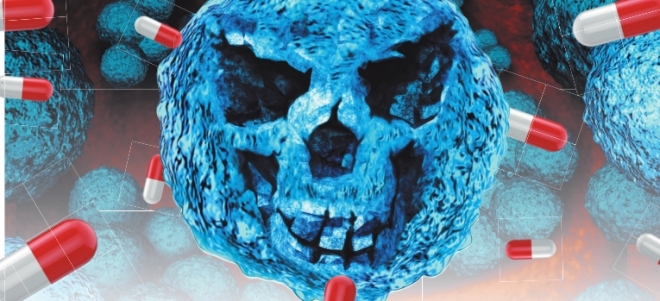GET SMART ABOUT ANTIBIOTICS 2017

Antibiotic resistance is on the rise
The week of Nov. 13-19 has been declared by the Centers for Disease Control (CDC) as Antibiotic Awareness Week. Observance of Antibiotic Awareness Week is one component of the CDC’s plan to improve the appropriate use of antibiotics within the community and health-care facilities. By reaching out to the public, the CDC hopes to raise awareness regarding the potential threat of antibiotic resistance and the importance of appropriate antibiotic use.
You may ask yourself, what’s the harm in taking an antibiotic if it cures what ails you? First, antibiotics won’t cure all your ills. Second, using antibiotics when they are not necessary may lead to antibiotic resistance. Antibiotic resistance is the ability of bacteria to resist the killing action of antibiotics. Resistant bacteria have always lived among us. It has been the widespread use of antibiotics over the years that have made more bacteria resistant to antibiotics. Inappropriate use of antibiotics kills vulnerable bacteria and increases the number of resistant bacteria which continue to grow.
Every year, at least two million people become infected with bacteria that are resistant to antibiotics, and at least 23,000 die as a result of these infections. Even more people die from the complications caused by antibiotic-resistant bacteria.
Treatment of antibiotic-resistant bacteria requires a longer hospital stay and stronger antibiotics normally reserved for the most serious infections. Unfortunately, the development of new antibiotics continues at a slow pace. Resistant bacteria are now a major threat to public health as the result of the emergence and spread of resistant bacteria and the slow development of new antibiotics.
Inappropriate use of antibiotics is the most common cause of antibiotic resistance. While antibiotics may be lifesaving medications, up to 50 percent of all antibiotics prescribed for patients are not necessary or not prescribed in a way that optimizes their benefit. Colds are the most common reason for prescribing antibiotics, even though antibiotics are not active against the viruses that cause the common cold. Never pressure your physician for an antibiotic. Talk to your physician about the best way to treat your symptoms so you can feel better. An antibiotic may not be the answer.
There are many ways you can help prevent the development and spread of resistant bacteria. Avoid taking antibiotics for conditions that are either not treatable with antibiotics or infections that get better by themselves without antibiotics. Some examples include the common cold, the flu, some mild sinus or ear infections and many sore throats. Many health-care professionals recommend waiting a few days to see if the infection gets better before considering an antibiotic. If an antibiotic is indicated, you should continue to take it until completed even if you feel better! Don’t skip doses or hold onto antibiotics for a future use.
Although antibiotics can be lifesaving medications, antibiotics may also cause side effects, some of which may be serious. Antibiotics are one of the most common causes of medication-related visits to the emergency room. The CDC estimates that antibiotic use results in more than 140,000 visits for emergency care. Approximately 79 percent of antibioticrelated visits to the emergency room are the result of an allergic reaction. Allergic reactions may range from a simple rash to a life-threatening event. Other side effects include diarrhea, yeast infections, abdominal pain and nausea. Avoid antibiotic side effects by taking them only when indicated.
Bacteria have managed to adapt and develop resistance to antibiotics since the discovery of penicillin almost a century ago. Charles Darwin once said, “It is not the strongest of the species that survives, nor the most intelligent that survives. It is the one that is most adaptable to change.” We cannot continue to take antibiotics for granted in the hopes that we will continue to find new ways to kill bacteria faster than bacteria can find ways to keep from being killed. Let’s not get outsmarted by bacteria. Get smart about antibiotics!
Tom Driscoll, clinical pharmacist, Christus Shreveport- Bossier Health System
